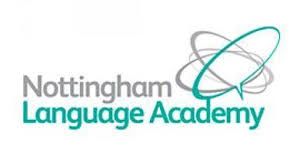Financial planning and budget preparation are cornerstones of effective decision-making in both personal and organizational contexts. These processes enable individuals and businesses to allocate resources efficiently, anticipate future financial needs, and mitigate risks. In an era where economic uncertainty and market volatility are prevalent, the ability to create accurate and actionable budgets is not just a skill but a necessity. This course delves into the methodologies, tools, and frameworks that underpin successful financial planning, equipping participants with the expertise to navigate complex fiscal environments.
One of the primary challenges faced by professionals today is the disconnect between strategic goals and financial execution. For instance, organizations often struggle to align their operational plans with available budgets, leading to inefficiencies and missed opportunities. Similarly, individuals may find it difficult to balance short-term financial demands with long-term aspirations. By addressing these gaps, this course aims to bridge the divide between vision and implementation, fostering a culture of informed financial stewardship.
The curriculum draws on established theories such as the Balanced Scorecard framework and Zero-Based Budgeting (ZBB) to provide a robust foundation for learning. These methodologies emphasize the importance of aligning financial strategies with broader organizational objectives, ensuring that every dollar spent contributes to measurable outcomes. Additionally, insights from behavioral economics highlight how cognitive biases can influence budgeting decisions, offering participants tools to recognize and counteract these tendencies.
Real-world examples underscore the practical relevance of the course content. Consider the case of a mid-sized manufacturing firm that implemented activity-based costing to refine its budgeting process. By identifying cost drivers and reallocating resources accordingly, the company achieved a 15% reduction in operational expenses within a year. Similarly, individuals who adopt disciplined financial planning practices often report improved credit scores, increased savings, and greater peace of mind. These anecdotes illustrate the transformative potential of mastering financial planning and budgeting.
For organizations, the benefits of this course extend beyond cost savings. Teams equipped with advanced budgeting skills can drive innovation, enhance stakeholder confidence, and position their companies for sustainable growth. On an individual level, participants will gain the ability to make data-driven decisions, secure better financing options, and achieve personal financial milestones. The ripple effects of these competencies are profound, influencing everything from career advancement to community development.
Ultimately, this course represents an investment in professional excellence and organizational resilience. Whether you are a seasoned financial analyst seeking to refine your skills or a newcomer eager to build a strong foundation, the program offers tailored insights and actionable strategies. By blending theoretical rigor with hands-on applications, it empowers participants to tackle real-world challenges with confidence and precision.



















































